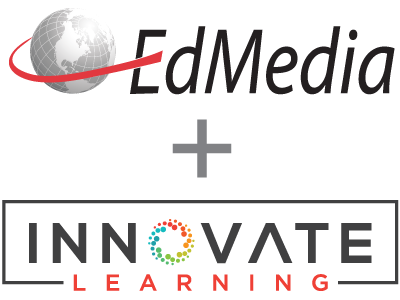
Innovative pedagogies and personalisation in STEM education with NEWTON Atomic Structure Virtual Lab
PROCEEDING
Tiina Lynch, Ioana Ghergulescu, Adaptemy, Ireland
EdMedia + Innovate Learning, in Amsterdam, Netherlands Publisher: Association for the Advancement of Computing in Education (AACE), Waynesville, NC
Abstract
STEM education in Europe is suffering due to student disengagement and demotivation, which is starting as early as 12-13 years of age. STEM education should be student-centred, encouraging inquiry and problem-solving skills, while being personalised for each student. Practical training is becoming a challenge for schools and universities due to funding cuts and space limitations. Virtual labs provide a solution to these challenges by removing limitations set by time, equipment, and geography. This paper presents the Atomic Structure Virtual Lab aimed at teaching secondary level Chemistry students, developed as a part of the EU H2020 NEWTON Project. This virtual lab is based on inquiry-based and self-directed learning, placing the students at the centre of the learning experience. The lab incorporates personalisation in the form of an innovative learning loop, gamification elements, instant feedback, accessibility for the hearing impaired, providing a unique learning experience for students. Preliminary interviews with secondary school students and teachers showed positive aspects and benefits of the Atomic Structure Virtual Lab.
Citation
Lynch, T. & Ghergulescu, I. (2018). Innovative pedagogies and personalisation in STEM education with NEWTON Atomic Structure Virtual Lab. In T. Bastiaens, J. Van Braak, M. Brown, L. Cantoni, M. Castro, R. Christensen, G. Davidson-Shivers, K. DePryck, M. Ebner, M. Fominykh, C. Fulford, S. Hatzipanagos, G. Knezek, K. Kreijns, G. Marks, E. Sointu, E. Korsgaard Sorensen, J. Viteli, J. Voogt, P. Weber, E. Weippl & O. Zawacki-Richter (Eds.), Proceedings of EdMedia: World Conference on Educational Media and Technology (pp. 1483-1491). Amsterdam, Netherlands: Association for the Advancement of Computing in Education (AACE). Retrieved September 1, 2024 from https://www.learntechlib.org/primary/p/184368/.
© 2018 Association for the Advancement of Computing in Education (AACE)
References
View References & Citations Map- Abdulwahed, M. (2010). Towards enhancing laboratory education by the development and evaluation of the “TriLab”: a triple access mode (virtual, hands-on and remote) laboratory (Thesis). © Mahmoud Abdulwahed. Retrieved from https://dspace.lboro.ac.uk/dspace-jspui/handle/2134/6355
- August, S.E., Hammers, M.L., Murphy, D.B., Neyer, A., Gueye, P., & Thames, R.Q. (2016). Virtual Engineering Sciences Learning Lab: Giving STEM Education a Second Life. IEEE Transactions on Learning Technologies, 9(1), 18–30.
- Bogusevschi, D., Bratu, M., Ghergulescu, I., Muntean, C.H., & Muntean, G.-M. (2018). Primary School STEM Education: Using 3D Computer-based Virtual Reality and Experimental Laboratory Simulation in a Physics Case Study. Presented at the Ireland International Conference on Education, IPeTEL workshop, Dublin.
- Bogusevschi, D., Tal, I., Bratu, M., Gornea, B., Caraman, D., Ghergulescu, I., Mutean, C.H., Muntean, G.-M. (2018). Water Cycle in Nature: Small-Scale STEM Education Pilot. Presented at the EdMedia World Conference on Educational Media and Technology, Amsterdam, The Netherlands.
- Culbertson, H., & Kuchenbecker, K.J. (2017). Importance of Matching Physical Friction, Hardness, and Texture in Creating Realistic Haptic Virtual Surfaces. IEEE Transactions on Haptics, 10(1), 63–74.
- De Jong, T., Sotiriou, S., & Gillet, D. (2014). Innovations in STEM education: the Go-Lab federation of online labs. Smart Learning Environments, 1(1), 3.
- Docebo. (2017). E-Learning Market Trends and Forecast 2017-2021. Retrieved January 23, 2017, from https://www.docebo.com/elearning-market-trends-report-2017-2021/
- Fernández-Avilés, D., Dotor, D., Contreras, D., & Salazar, J.C. (2016). Virtual labs: A new tool in the education: Experience of Technical University of Madrid. In 2016 13th International Conference on Remote Engineering and Virtual Instrumentation (REV) (pp. 271–272).
- Im, S., & Kim, O.-J. (2014). An Approach to Teach Science to Students with Limited Language Proficiency: In the Case of Students with Hearing Impairment. International Journal of Science and Mathematics Education, 12(6), 1393–1406.
- Lynch, T., Playfoot, J., De Nicola, C., Guarino, G., Di Salvadore, F., & Ghergulescu, I. (2018). Gamification elements in STEM subjects– Lessons learned from NEWTON Project. Presented at the Ireland International Conference on Education, IPeTEL workshop, Dublin.
- Merchant, Z., Goetz, E.T., Cifuentes, L., Keeney-Kennicutt, W., & Davis, T.J. (2014). Effectiveness of virtual reality-based instruction on students’ learning outcomes in K-12 and higher education: A meta-analysis. Computers& Education, 70(Supplement C), 29–40. Https://doi.org/10.1016/J.compedu.2013.07.033
- Montandon, L., Playfoot, J., Ghergulescu, I., Bratu, M., Bogusevschi, D., El Mawas, N., & Rybarova, R. (2018). Multidimensional Approach for the Pedagogical Assessment in STEM Technology Enhanced Learning. Presented at the EdMedia World Conference on Educational Media and Technolog, Amsterdam, The Netherlands.
- Passig, D., & Eden, S. (2000). Enhancing the Induction Skill of Deaf and Hard-of-Hearing Children with Virtual Reality Technology. Journal of Deaf Studies and Deaf Education, 5(3), 277–285. Https://doi.org/10.1093/deafed/5.3.277
- Shapira, L., Amores, J., & Benavides, X. (2016). TactileVR: Integrating Physical Toys into Learn and Play Virtual Reality Experiences. In 2016 IEEE International Symposium on Mixed and Augmented Reality (ISMAR) (pp. 100–106).
- Wolf, T. (2010). Assessing Student Learning in a Virtual Laboratory Environment. IEEE Transactions on Education, 53(2), 216– 222.
- Zarfaty, Y., Nunes, T., & Bryant, P. (2004). The Performance of Young Deaf Children in Spatial and Temporal Number Tasks. The Journal of Deaf Studies and Deaf Education, 9(3), 315–326.
These references have been extracted automatically and may have some errors. Signed in users can suggest corrections to these mistakes.
Suggest Corrections to ReferencesSlides
- NEWTON_AtomicStructure_Edmedia_53039.pptx (Access with Subscription)
